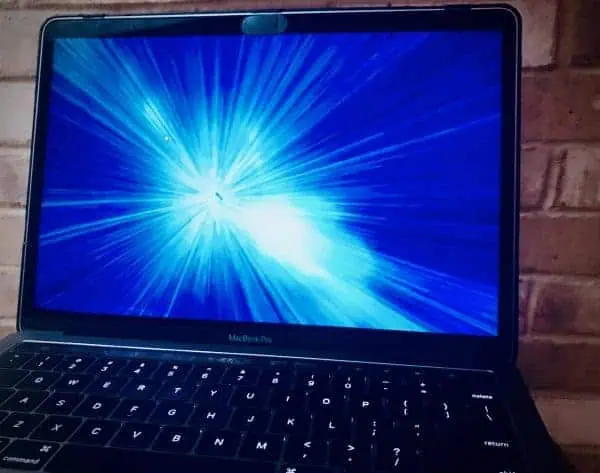We recently caught up with Pavel Bains, CEO at Bluzelle Networks, a company and platform that aims to develop fast, adaptive, and agile distributed ledger technology (DLT)-based solutions for the finance sector.
Bains talked about the challenges associated with working on centralized platforms. He discussed how a central point of failure on centralized networks like Cloudflare has resulted in long periods of downtime on many occasions. Bains claims that decentralized applications (dApps) may have the potential to provide a more reliable technology infrastructure for launching financial services. Our discussion is shared below.
Crowdfund Insider: We’ve relied on centralized databases for decades. What are the drawbacks or risks of using centralized databases and why do you think this is the best time to switch to decentralized ones?
 Pavel Bains: Two biggest risks are a central point of failure and censorship. So much of the internet runs on the same providers that if something happens to those providers, much of the web is not accessible. Just this year Cloudflare went down and so did a lot of internet services. Also, parties can force a provider to shut down the database for a site. With a decentralized database, there is no one provider to ask for this to happen.
Pavel Bains: Two biggest risks are a central point of failure and censorship. So much of the internet runs on the same providers that if something happens to those providers, much of the web is not accessible. Just this year Cloudflare went down and so did a lot of internet services. Also, parties can force a provider to shut down the database for a site. With a decentralized database, there is no one provider to ask for this to happen.
Centralized databases are also a privacy nightmare, both for users and for web companies that are tasked with safeguarding the data stored in them – and who are left on the hook for lawsuits and losses running into the millions should hackers breach them. Decentralized databases support self-sovereign identity, with data encrypted and accessible only by the user whose digital identity is authorized to unlock it.
Crowdfund Insider: Blockchains have a bad reputation for being slow and unscalable. Do you think using a decentralized infrastructure such as blockchain for storage is feasible on a large scale? If so, how?
Pavel Bains: Bluzelle doesn’t store the data on a blockchain. It uses the consensus mechanism of a blockchain to validate all transactions for creating, updating and deleting data. The way we’ve architected the system, our storage networks can scale quickly as more storage providers join. If you used a blockchain like Ethereum as the data storage layers, then it would not be feasible.
Blockchain technology has come a long way from first and second-generation chains like Bitcoin and Ethereum. Today, it’s possible to have your cake and eat it, so to speak: high throughput and fast transactions, stored on a distributed ledger that is fully decentralized.
Crowdfund Insider: Bluzelle specifically focuses on providing decentralized storage space to Dapp developers. What problems do you think having decentralized storage for their application data will solve for developers?
Pavel Bains: DeFi (decentralized finance) is all about eliminating centralized points of control. If your dApp has a kill switch, as is the case with centralized storage, it’s not a dApp – it’s an app, and we already have plenty of those.
A dapp cannot claim it’s decentralized if 80% of its tech stack is centralized. The reasons for using Bluzelle are (1) you don’t get one central point of failure, so their data is always available, (2) no outside party can compromise the data, so there is greater security and privacy. At the same time, there is the same scalability, data speeds, and accessibility as a centralized database, so there’s no sacrifice in performance. In fact, when you use a distributed network, data propagation speeds are faster since nodes are geographically closer to the user.
Crowdfund Insider: According to Bluzelle’s proposition, it can cut the cost of data storage for developers by almost 50%. How does Bluzelle reduce the storage cost by such a huge margin? Are the low-costs applicable under all conditions or is it only under the best-case scenario?
Pavel Bains: Replication of data is a major cost area for centralized databases, and this is passed on to the customer. Another is data transfer. With a decentralized network, the data is already replicated across all the nodes in the network. As a result there are no multi-replication costs needed. Add to that no overhead by Bluzelle since we don’t own the servers and the total cost to developers can come down.
Many dApps are developed on a shoestring budget and have no means of monetization initially. As a result, storage can cripple a project by placing the burden for data costs squarely on the team. Bluzelle fixes this by providing a scalable framework in which dApps are only charged for the data they consume.
Crowdfund Insider: How does Bluzelle ensure complete decentralization of its storage?
Pavel Bains: The nodes on our network are run by independent validators and verified by the consensus mechanism, Tendermint by Cosmos. This ensures that any data that is added or changed is validated by the network. Each node acts as storage provider and network validator.
If they do something wrong they are penalized. As a result, providers are incentivized to work for the good of the network. The number of nodes running on the Bluzelle network, meanwhile, ensures that it cannot be commandeered by any one entity and prevents censorship or service suspension.
Crowdfund Insider: What are the future plans for Bluzelle? Will it expand its services beyond providing decentralized storage to Dapp developers? How do you see the times ahead unfolding for the company and its platform?
Pavel Bains: We’ve already started that with the release of Bluzelle Oracles. It’s a decentralized oracle solution that’s powered by Bluzelle DB. We see it as a killer app built on our platform that provides security and speed for data oracles, where others need to choose one over the other. Plus because we have our own database behind it, we can provide historical data prices that are needed by DeFi as it allows projects to perform analytics and get security warnings. This will reduce the chances of DeFi attacks that projects have been experiencing.
Oracles are a vital part of the DeFi toolset since blockchains are inherently unable to query data from external sources. Engineering an oracle that can withstand adversarial attacks, and whose price and other data feeds are reliable, is a complex feat, but one that we’re confident we’ve pulled off.
For the next 12 months, we’ll be focusing on expanding the storage network and developer acquisition so they can build more apps on top of Bluzelle. At the same time we’ll push Bluzelle Oracles for production and monetization.


